Aisam: Off the court
Raising a racket with Aisam-ul-Haq: Pakistan’s top tennis player talks about his book, tennis and life after...
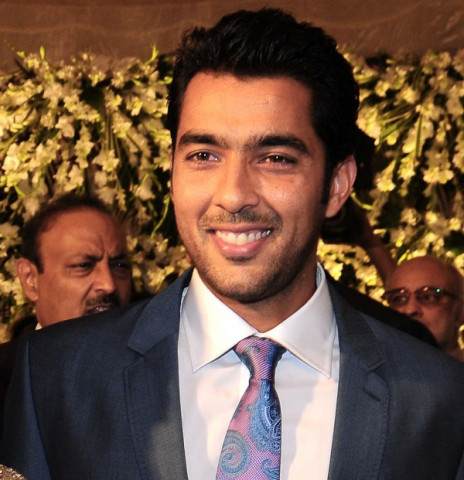
You returned to Pakistan in between tournaments to launch your book. What is the book about and how did the idea come about?
The idea of the book came from my coach Robert Davis who’s been with me on and off for the last 10 years. Because of the demands of my career, I’m hardly in Pakistan — two months max at a time — so he told me to reach the youth of Pakistan in the fastest manner possible. The book comprises lessons I learnt as a Pakistani and Muslim, travelling for the past 12 years.
Did you write it yourself?
No, it’s Davis’ writing but the experiences are all mine. He’s an American who’s also a travel writer and writes for ATP [Association of Tennis Professionals] magazines. The lessons are not just about sports. It contains my experiences on the road: How I dealt with prejudice, about working hard, family values, not giving up while thinking about the end product. It’s not an autobiography but more of a guidance piece.
Does it also include mistakes that you made and advice for others to avoid the same?
Yes, definitely. Some of the biggest mistakes I made were at the times when I thought of giving up tennis. Things weren’t actually working out for me, I wasn’t getting the recognition I deserved even in Pakistan. Neither was I getting sponsors to support my dreams and realise my talent. There were tough losses on the court but then I found the ability and courage to bounce back. I’m the only Pakistani on the ATP tour so it was difficult. It took 12 years but I finally got recognition in Pakistan.
Tennis isn’t a household name in Pakistan. How can things actually improve?
I’ve become the door opener for tennis in Pakistan and I’m doing my level best to promote it even more — but the federation has to capitalise on my achievements. When people see there’s money in the sport, they’ll be encouraged to take it up. Sponsorships, commercials and the like can bring about a positive change. We now have two sports channels in Pakistan. They should’ve shown our Davis Cup matches on TV. When people see what we do, the way we fight for Pakistan, awareness will increase — of the sport and the players.
Do you have any plans on improving the situation?
Yes, I wanted to open an academy but I’ve been trying to get a piece of land in Lahore for almost two years. I haven’t heard anything back from the government so once I get done with the book, I’m going to set up a programme in schools for four to six year olds. Those kids will learn the basics of tennis, hand-eye coordination, etc. This will make them interested in tennis instead of cricket and when they turn 11 or 12, maybe they’ll want to become tennis players.
Is there enough money in tennis to attract those kids?
There wasn’t enough money before but we have sponsors, commercials and endorsements coming into tennis gradually. Even I’ve done a few commercials so that’s a positive thing for a tennis player in Pakistan when he or she sees sponsors and financial backing.
Yes, that commercial. How come your parents weren’t part of that?
The initial plan was to have my parents play that part in the Olpers advert. However, the agency decided it was best left to professional actors to do it. But now that I see the ad, I’m sure my parents would’ve easily played those roles.
Your routine sounds hectic. How does your wife Faha take this? Do you get enough time out for her?
Well, we’ve only been married a short time so we’re still learning things about each other. She’s been travelling with me for tournaments. She was even with us for the Davis Cup tie in Lebanon [which Pakistan won] and I think she’s my lucky charm! It was also the first time that I didn’t have to share a room with Aqeel [Pakistan’s number two] so that was a good change as well! But she doesn’t interfere. If I need to train, she lets me. My life hasn’t changed when it comes to playing but now I have responsibilities away from it as well. Before it was just me, me and me. Now there’s a bit of Faha in there too. She’ll be travelling with me for the first year of marriage but she has responsibilities as a daughter-in-law and that will come in too.
You’ve also formed new partnerships on the court. How’s that coming along?
It’s a big change for me. I now have three ongoing relationships — with my wife, my men’s doubles partner and my mixed doubles partner — and I need to juggle them efficiently. I try and take all of these changes in a positive way, take them as an opportunity to learn something new. Rojer [my men’s doubles partner] is a great guy and works hard. We’re still learning things about each other so hopefully, things will improve. I also became the first Pakistani to reach the Australian Open quarter-finals [in mixed doubles] so that was an achievement too.
Pakistan’s on-court fortunes are also improving. How much talent do we have in youngsters to keep it going after you and Aqeel go?
For starters, the juniors have to start beating me and Aqeel in order to progress. Aqeel has been Pakistan’s number one for the last decade and he wins every national event he plays. We had a four-man squad for the Davis Cup but only me and Aqeel played. The coach and the captain didn’t have confidence in the others. There aren’t any juniors who can push us. The gap between us and them is huge. But the answer to that is simple: all they need to do is work harder and they’ll get to where we are. They need to get international exposure too. So I hope the federation has some plans of sending these kids abroad, or that international events start taking place in Pakistan once again.
You obviously don’t have too many years left. What do you want to achieve before you sign off?
I’m not going to give up until I win a grand slam. Obviously, I want to be the world number one as well and I’m training harder than ever to achieve that. I’ve cleared a lot of obstacles recently and I know I can get to where I want to be. So hopefully I can make myself and the nation proud once again by reaching those targets.
Published in The Express Tribune, Sunday Magazine, February 26th, 2012.

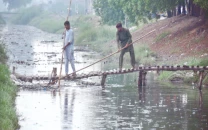

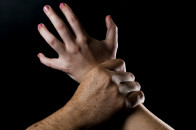
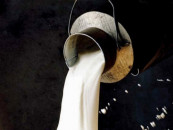

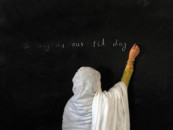












COMMENTS
Comments are moderated and generally will be posted if they are on-topic and not abusive.
For more information, please see our Comments FAQ